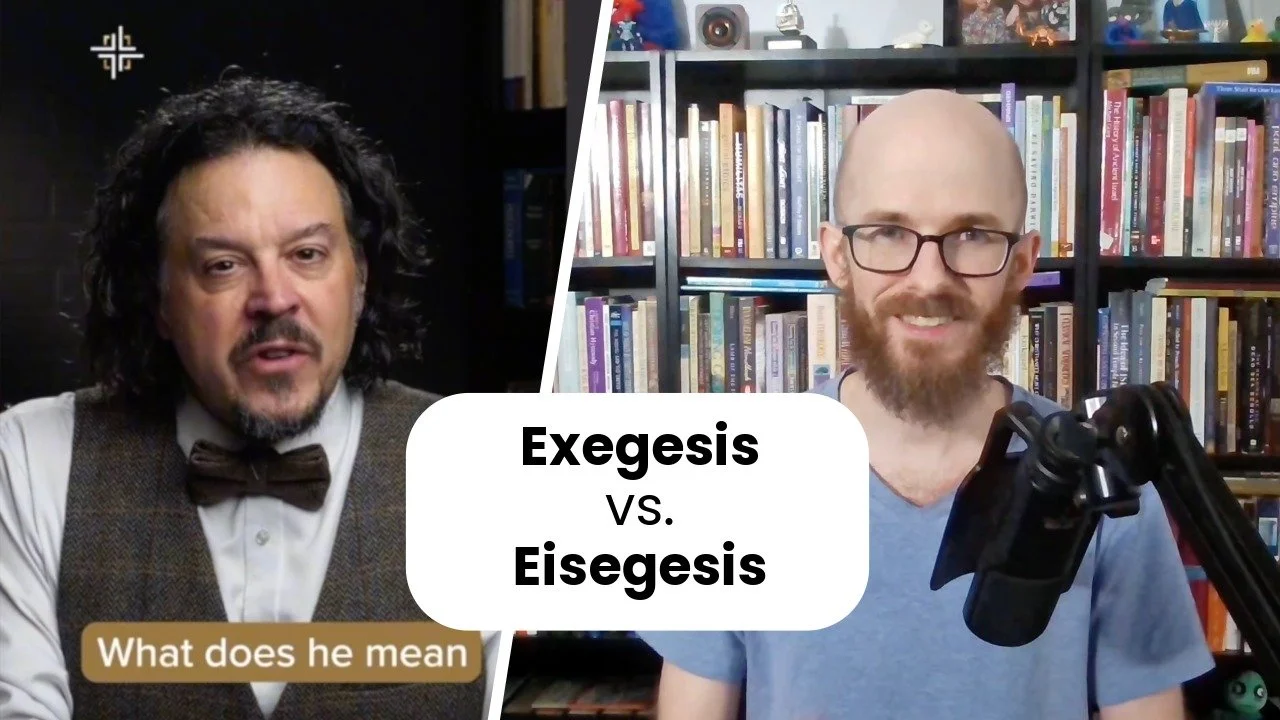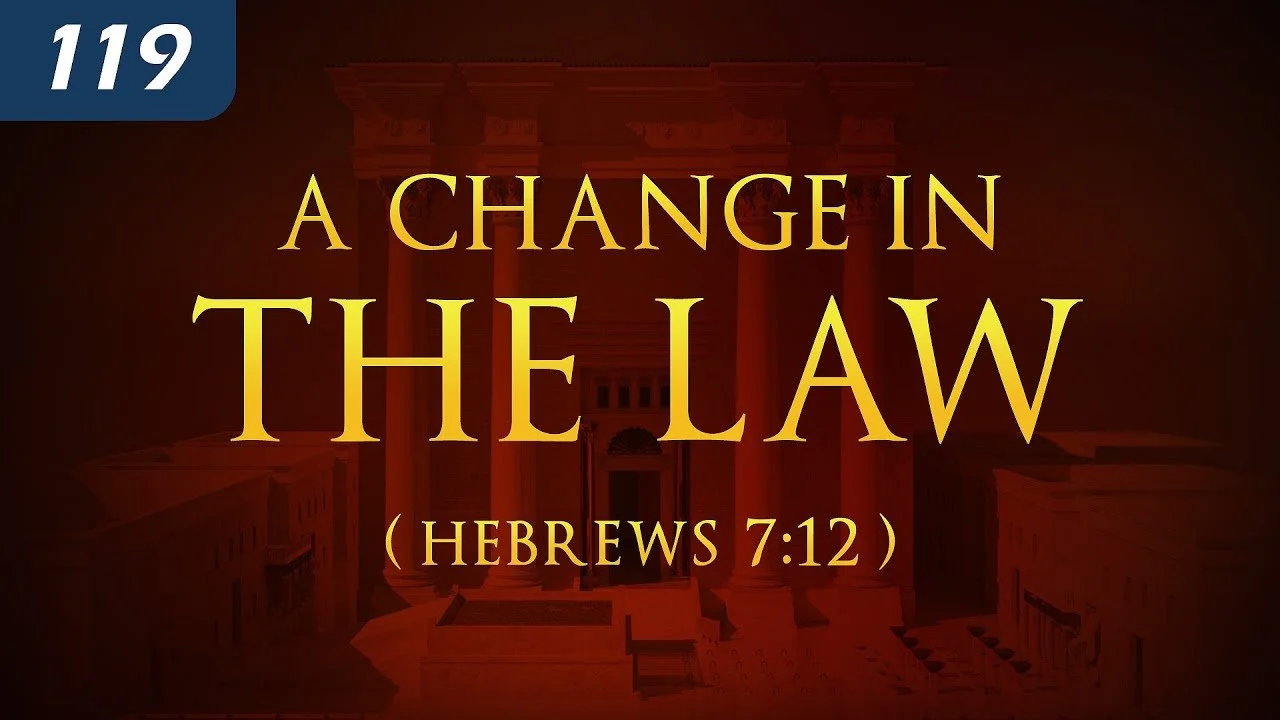In this video, we look at R. L. Solberg’s approach to Scripture by focusing on his mishandling of Matthew 5:17–20. Rather than considering the immediate context, Solberg ignores it completely and appeals to other, unrelated texts to argue that Jesus could not have meant what he said in this passage. This eisegetical approach raises serious doubts about his reliability as a biblical interpreter.
Can Christians Support Hanukkah? | A Response to Dale Partridge
Candace Owens is Wrong About Christians and the Sabbath
The Messiah's Name is Not "Yahusha"
Nick Fuentes is Wrong About the Law of Moses, Israel, and the New Testament
Timothy Alberino is Wrong about the Son of Man in the Book of Enoch
Timothy Alberino claims that the “Son of Man” passages in the Book of Enoch are prophecies about Jesus and takes this as proof that the Book of Enoch is divinely inspired. However, there is a major problem with that idea: the Book of Enoch explicitly identifies Enoch himself—not Jesus—as the Son of Man, which directly contradicts the New Testament.
It is Not "Satanic" to Agree with the Apostolic Decree
A popular account on X (formerly Twitter) recently labeled me a “Judaizer” for agreeing with the Apostolic Decree in Acts 15:20. Other folks then piled on, calling me “Satanic,” a “heretic,” and all sorts of other names. In this video, I’ll explain why it should not be controversial to believe that the four commandments of the Apostolic Decree are still relevant. As I’ll demonstrate, these four commandments are consistently affirmed throughout the New Testament and early Christian writings.
There Was No Conspiracy to Suppress the Book of Enoch: A Response to Tim Alberino
The Truth About the Talmud
Paul Does Not Condemn the Biblical Calendar in Galatians 4:10 | A Response to Steven Anderson
In Galatians 4:8–11, Paul rebukes the Galatians for observing “days and months and seasons and years.” What exactly does Paul mean by this phrase? The standard antinomian view, represented by Pastor Steven Anderson, is that this is a reference to the biblical calendar outlined in the Law of Moses. Thus, Paul is condemning the observance of the Sabbath and biblical festivals, or so the argument goes. But is that really what this passage teaches? In this video, we take a closer look at the context and historical background of Galatians 4:10. In contrast to Pastor Anderson, I contend that Paul is not chastising the Galatians for observing the biblical calendar, but for something entirely different.
Is Passover Offensive to Christ? | A Response to Joel Webbon
Ian Carroll is Wrong about the Scofield Bible
Ian Carroll recently claimed that the Rothschild family commissioned Cyrus Scofield to create a new, pro-Jewish version of the Bible—the “Scofield Bible”—to dupe evangelicals into supporting Israel and the Jewish people. The problem, however, is that Carroll’s theory has zero evidence and is purely a product of his own fevered imagination, as I explain.
5 Reasons Christians Should Study Apologetics
Marital Intimacy on the Sabbath: Does it Violate the Commandment?
What Wes Huff Got RIGHT About the Sabbath on the Joe Rogan Experience
A Change in the Law (Hebrews 7:12)
In Hebrews 7:12, the author announces, “For when there is a change in the priesthood, there is necessarily a change in the law as well.” Many have taken this to mean that the Levitical priesthood and the entire Law of Moses has been overturned. But is that really what the author of Hebrews is saying? Actually, there are some major problems with this interpretation.
James Understood the Gospel. Matt McMillen Does Not.
A Christian TikTok/Instagram influencer named Matt McMillen claims that James did not fully appreciate the Messiah’s work on the cross and did not understand the gospel. He bases this claim on James’s affirmation of the ongoing validity of the Law of Moses, which McMillen views as conflicting with the Gospel. In this video, I interact with McMillen's objections.
Keep Torah Better Than the Scribes and Pharisees (Matthew 5:20)
Jesus taught that the Law of Moses is not abolished (Matthew 5:17), that it will remain in force for as long as heaven and earth endure (Matthew 5:18), and that his followers must obey and teach it (Matthew 5:19). Now, in Matthew 5:20, he demands that his followers surpass the righteousness of the scribes and Pharisees. But what does it mean to surpass their righteousness? In this video, we will explore this question in detail.
I Did NOT Mischaracterize Dr. Averbeck's Views on the Law of Moses
Andrew Schumacher has accused me of mischaracterizing Dr. Richard Averbeck’s position on the Law of Moses during my interview with him. So, I decided to show some clips from the interview, which debunk Andrew's accusation. Furthermore, I reached out to Dr. Averbeck directly to ask him if he thought that I misrepresented him. In this video, I’ll show you what Dr. Averbeck said.
Andrew Schumacher Caught Lying About My Use of Scholarship
A YouTuber named Andrew Schumacher recently published a hit piece where he tries to discredit me for my use of scholarly resources, accusing me of appealing to scholars in a misleading way. This isn’t the kind of video I typically enjoy making, but I believe it’s important to address for the reasons I explain in the video. Here, I respond to Andrew’s claims point by point. I hope this will be helpful and encouraging to you!





















